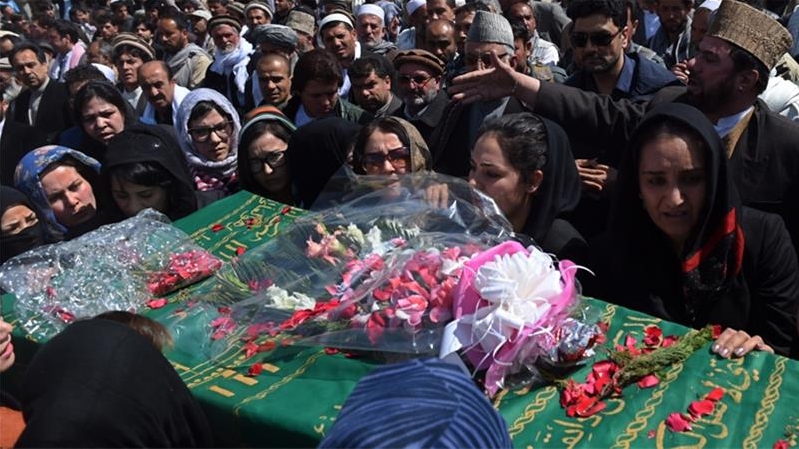
In a surprising ruling, an Afghan judge has sentenced four men to death and eight others to sixteen years in prison after they killed of a woman who was falsely accused of burning the Quran.
As previously reported by the Gospel Herald in March, a mob of men attacked 27-year-old Farkhunda before tossing her off a Kabul bridge, setting her body on fire and throwing it in the river.
At the time, a BBC report noted that a recorded video of the tragedy shows the woman, surrounded by a large group of men, standing with her face covered in blood. She is then pushed and falls over, and her beating continues with feet, rocks and boards. Finally, her body is shown engulfed in flames as onlookers chanted "Allahu akbar!" or "God is great." The report reveals that firefighters later came and put out the fire and took the mangled body.
The Wall Street Journal notes that thirty civilians faced prosecution in the case; in addition, 19 police officers have been charged with criminal negligence and dereliction of duty. Judge Saifullah Mojaddadi read the verdicts Wednesday morning following a two-day televised trial.
"The trial was far from perfect but it was held in open court, which definitely contributes to the strengthening of rule of law and gives the Afghan people the feeling that at the end of the day, the law does prevail," Barry Salaam, an activist who organized mass demonstrations in the days after Farkhunda's death, told The Associated Press.
While early reports after Farkunda's death suggested she was mentally ill, her father Nadir, told CNN affiliate TOLOnews she was a religious teacher who taught the Quran to children, and there was no way his daughter would burn pages of the book, as her attackers stated.
According to Farkhunda's parents, the brutal killing was instigated by a local mullah of the Shah-e-Do Shamshera Mosque in the center of Kabul, who had been angered by Farkhunda's accusations that he was distributing false "tawiz," or pendant containing verses of the Quran thought to ward of evil.
"In order to save his job and life," the report notes, the mullah began shouting accusations that Farkhunda had burned the Quran.
"We were asking the people to stop beating her and let us ask what religion she belongs to," one witness told TOLOnews. "But the people didn't listen to us and kept beating her."
While the court's decision to punish the young woman's attackers has been praised by some as a landmark judgment in a nation where crimes against females often go unpunished, others not there is a "long way to go" in regards to women's rights.
"I don't think Afghan women are going to be bolstered very much by it," Bahar Jalali, a gender studies professor at American University in Afghanistan, told the Christian Science Monitor. "I do think it's an important step, but we still have a long ways to go."
"Four men is not enough," 27 year old Fatima Hassani told the WSJ regarding those punished for Farkhunda's death. "It wasn't just four people who set her body on fire and lynched her publicly. There were lots of people."







